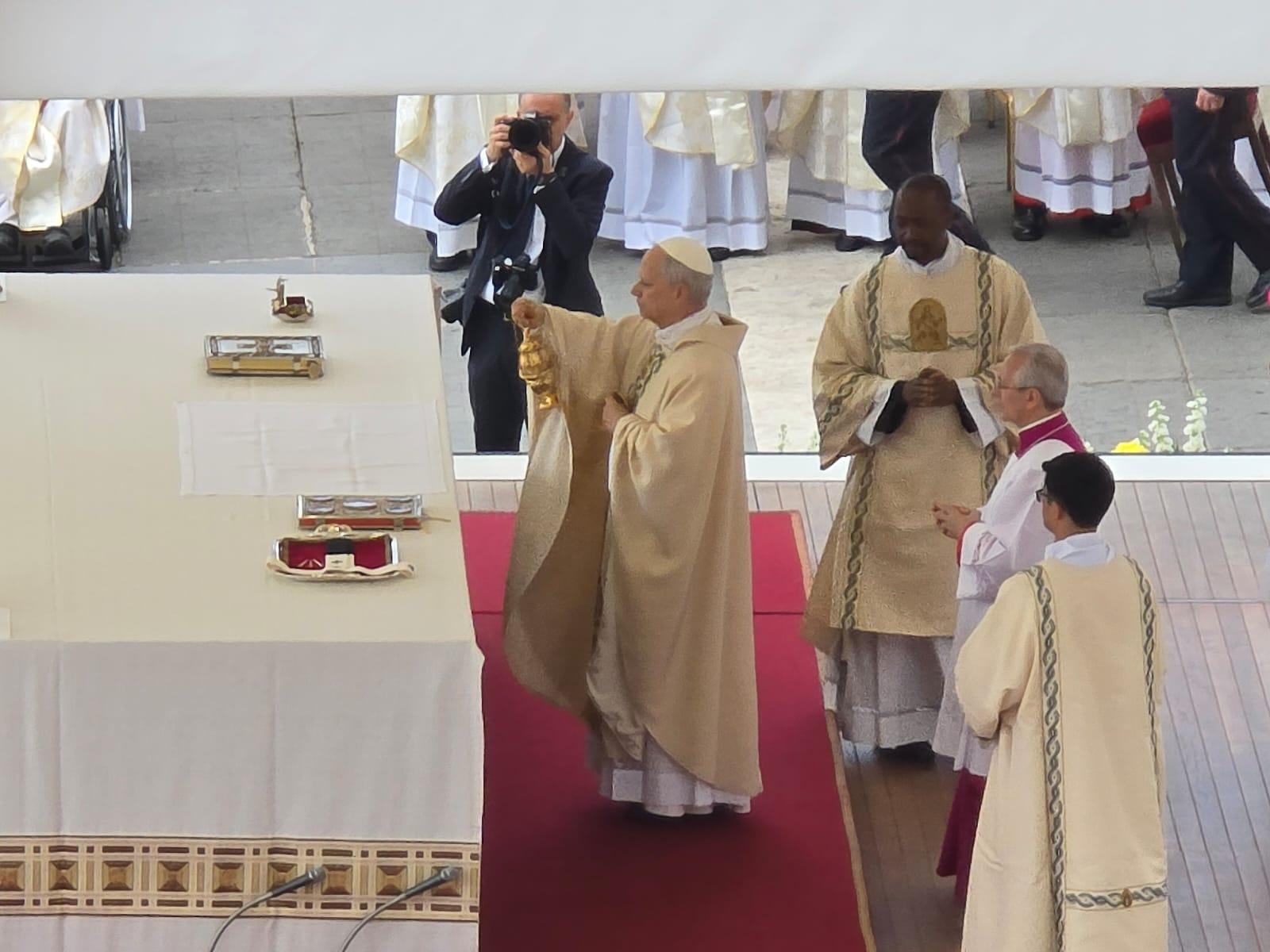In his official inauguration in office, Pope Leo XIV said his “first great desire” is for a united Church, “a sign of unity and communion, which becomes a leaven for a reconciled world.”
In his homily at Mass in St. Peter’s Square on Sunday, the pope began with the words of Saint Augustine: “Lord, you have made us for yourself, and our heart is restless until it rests in you.”
The former Cardinal Robert Francis Prevost was once head of his Saint Augustine Order and quoted the early Church Father in his homily: “The Church consists of all those who are in harmony with their brothers and sisters and who love their neighbor.”
The first American pope was elected on May 8, and has held many roles in the Church before his pontificate. In addition to heading the Augustinians, he was bishop of Chiclayo in Peru – where he obtained citizenship – and then the Prefect of the Dicastery for Bishops.
He has spoken of unity in the Church and world several times since his election, and this did not change on Sunday.
“In this our time, we still see too much discord, too many wounds caused by hatred, violence, prejudice, the fear of difference, and an economic paradigm that exploits the Earth’s resources and marginalizes the poorest,” he said.
“For our part, we want to be a small leaven of unity, communion and fraternity within the world. We want to say to the world, with humility and joy: Look to Christ! Come closer to him! Welcome his word that enlightens and consoles!” Leo said.
“Listen to his offer of love and become his one family: in the one Christ, we are one. This is the path to follow together, among ourselves but also with our sister Christian churches, with those who follow other religious paths, with those who are searching for God, with all women and men of good will, in order to build a new world where peace reigns,” he continued.
The new pope said he was chosen “without any merit of my own, and now, with fear and trembling,” and comes to lead the Church as a brother, “who desires to be the servant of your faith and your joy, walking with you on the path of God’s love, for he wants us all to be united in one family.”
Leo said love and unity are the two dimensions of the mission entrusted to Peter by Jesus.
“We see this in today’s Gospel, which takes us to the Sea of Galilee, where Jesus began the mission, he received from the Father: to be a ‘fisher’ of humanity in order to draw it up from the waters of evil and death. Walking along the shore, he had called Peter and the other first disciples to be, like him, ‘fishers of men.’ Now, after the resurrection, it is up to them to carry on this mission, to cast their nets again and again, to bring the hope of the Gospel into the ‘waters’ of the world, to sail the seas of life so that all may experience God’s embrace,” he said.
“How can Peter carry out this task? The Gospel tells us that it is possible only because his own life was touched by the infinite and unconditional love of God, even in the hour of his failure and denial,” Leo said.
“For this reason, when Jesus addresses Peter, the Gospel uses the Greek verb agapáo, which refers to the love that God has for us, to the offering of himself without reserve and without calculation. Whereas the verb used in Peter’s response describes the love of friendship that we have for one another,” he explained.
Leo noted that when when Jesus asks Peter, “Simon, son of John, do you love me more than these?” in the Gospel of John, he is referring to the love of the Father.
“It is as if Jesus said to him, ‘Only if you have known and experienced this love of God, which never fails, will you be able to feed my lambs. Only in the love of God the Father will you be able to love your brothers and sisters with that same ‘more’, that is, by offering your life for your brothers and sisters.’ Peter is thus entrusted with the task of ‘loving more’ and giving his life for the flock,” the pope said.
“The ministry of Peter is distinguished precisely by this self-sacrificing love, because the Church of Rome presides in charity and its true authority is the charity of Christ. It is never a question of capturing others by force, by religious propaganda or by means of power. Instead, it is always and only a question of loving as Jesus did,” he continued.
“Moreover, if the rock is Christ, Peter must shepherd the flock without ever yielding to the temptation to be an autocrat, lording it over those entrusted to him. On the contrary, he is called to serve the faith of his brothers and sisters, and to walk alongside them, for all of us are ‘living stones’, called through our baptism to build God’s house in fraternal communion, in the harmony of the Spirit, in the coexistence of diversity,” Leo said.
Follow Charles Collins on X: @CharlesinRome











